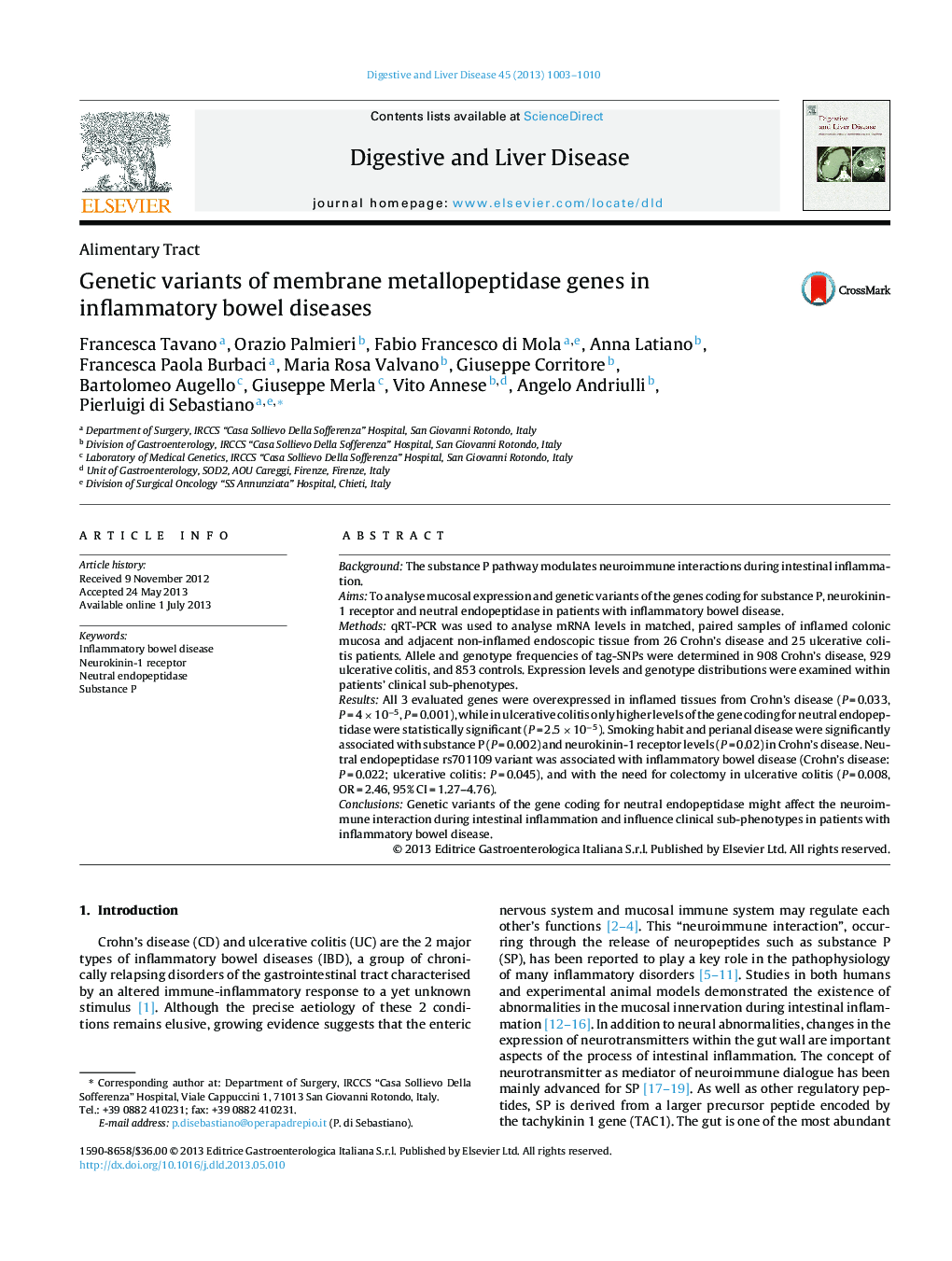| Article ID | Journal | Published Year | Pages | File Type |
|---|---|---|---|---|
| 6088725 | Digestive and Liver Disease | 2013 | 8 Pages |
BackgroundThe substance P pathway modulates neuroimmune interactions during intestinal inflammation.AimsTo analyse mucosal expression and genetic variants of the genes coding for substance P, neurokinin-1 receptor and neutral endopeptidase in patients with inflammatory bowel disease.MethodsqRT-PCR was used to analyse mRNA levels in matched, paired samples of inflamed colonic mucosa and adjacent non-inflamed endoscopic tissue from 26 Crohn's disease and 25 ulcerative colitis patients. Allele and genotype frequencies of tag-SNPs were determined in 908 Crohn's disease, 929 ulcerative colitis, and 853 controls. Expression levels and genotype distributions were examined within patients' clinical sub-phenotypes.ResultsAll 3 evaluated genes were overexpressed in inflamed tissues from Crohn's disease (PÂ =Â 0.033, PÂ =Â 4Â ÃÂ 10â5, PÂ =Â 0.001), while in ulcerative colitis only higher levels of the gene coding for neutral endopeptidase were statistically significant (PÂ =Â 2.5Â ÃÂ 10â5). Smoking habit and perianal disease were significantly associated with substance P (PÂ =Â 0.002) and neurokinin-1 receptor levels (PÂ =Â 0.02) in Crohn's disease. Neutral endopeptidase rs701109 variant was associated with inflammatory bowel disease (Crohn's disease: PÂ =Â 0.022; ulcerative colitis: PÂ =Â 0.045), and with the need for colectomy in ulcerative colitis (PÂ =Â 0.008, ORÂ =Â 2.46, 95% CIÂ =Â 1.27-4.76).ConclusionsGenetic variants of the gene coding for neutral endopeptidase might affect the neuroimmune interaction during intestinal inflammation and influence clinical sub-phenotypes in patients with inflammatory bowel disease.
